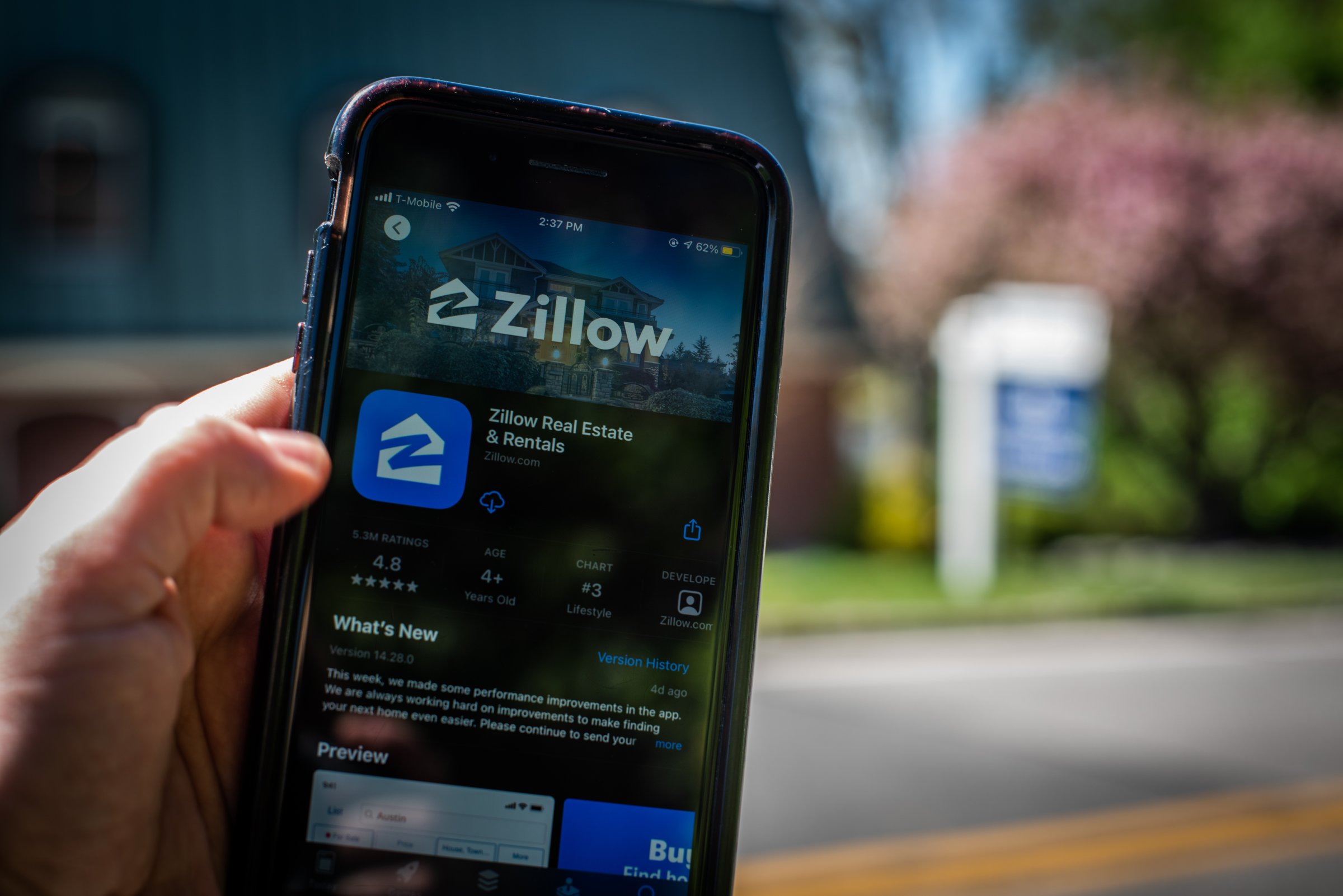
With mortgage rates at 21-year highs and the number of homes sold each month hovering near their lowest point in more than a decade, mortgage brokers are going to unusual lengths to induce buyers to enter the housing market.
One of the more eye-catching gambits is from Zillow, the online real estate platform, which is offering new home buyers thousands of dollars to help them with their down payments. The program, which the company is piloting in Arizona, will give grants to qualified homebuyers worth 2% of the purchase price, lowering their down payment to as low as 1%.
For a so-called starter home in Arizona that costs $275,000—an example Zillow gives in its press release announcing the program—that means a grant of $5,500.
As Zillow economist Orphe Divounguy explains it, the company is offering the same assistance potential home buyers often receive from their parents. “In an environment where lending is tight, you have renters that are paying essentially as much, if not more, in rent than they would pay to own,” Divounguy says. “This is kind of the perfect timing to step in here and help those who have been sidelined by the fact that they don't have access to parental home equity.”
Zillow spokespeople would not say how much it expects to hand out in down payment assistance, nor what it expects will be the size of the average individual grant, but the company does hope to roll out the plan nationally. Because the program is limited to first-time buyers with income below the average in the area, the grants are unlikely to be more than $10,000.
More From TIME
High interest rates, low inventory
Only 4.04 million existing homes were sold in August in the U.S., the worst number for any August since 2010, according to the National Association of Realtors. According to real estate agents and housing market observers, the sluggish market is driven not just by high interest rates, but a dearth of available homes. The shortage is a product of a pandemic-related slowdown in construction and the unwillingness of existing homeowners to give up low mortgage rates they secured years ago.
“It’s a strange, strange market,” says Butch Leiber, a real estate agent and president of the Phoenix Realtors board of directors. “We have super, super low inventory. As interest rates went up, we saw buyer activity drop. The problem is, so did seller activity. If they have a mortgage, they have a 3%, 4%, 5% mortgage and they don’t want to move.” The average 30-year fixed interest rate is 8.07% as of Oct. 16, according to Investopedia.
To encourage buyers, home builders are also trying to lower the price of borrowing. While Zillow is offering down payment assistance, builders are lowering interest rates for buyers by “buying down” mortgage rates. In essence, they are paying a bank or mortgage originator a one-time fee in exchange for a lower interest rate. Since the biggest home builders, like Lennar and Pulte, also own mortgage origination businesses, they face less financial exposure.
While Zillow isn’t a home builder, it similarly is trying to capture as much of the real estate market as possible. Founded in 2004, Seattle-based Zillow began as an online real estate data and listings service. It has since expanded to include managing apartments, brokering rentals, and connecting buyers and sellers with agents. In 2018, it acquired Mortgage Lenders of America to enter the home-loans business. According to Zillow CEO and co-founder Rich Barton, the company aims to double its share of all U.S. real estate transactions from 3% to 6% by 2025.
Entering the "Zillow ecosphere"
By helping potential home buyers take out mortgages, Zillow locks them into its suite of real estate products and services, Leiber says. “If they can get them into the Zillow ecosphere, they will be tied to Zillow for a long time,” he says.
Creating incentives for low-income home buyers to take on debt evokes the specter of the subprime mortgage issues that helped create the global financial crisis of 2008. However, Zillow executives say the program is nothing like the high-risk mortgages offered to unqualified buyers nearly two decades ago.
“This isn't 2006, 2007,” Divounguy says. “This is a conventional 30-year fixed loan, where prospective buyers have to meet all the usual qualifications, the usual requirements.” Further, he says, there are so many well-qualified buyers needing homes, Zillow doesn’t have to loan to unqualified buyers. “Mortgage delinquency rates are lower today than they were before the pandemic or almost at any time in recorded history,” Divounguy says. “Credit scores of new homebuyers are near their highest level since we've been recording those.”
While Zillow’s program is unusual in that down-payment assistance is coming from a lender, there are many such programs run by governments and nonprofits to help first-time home buyers, particularly those in the military or those from disadvantaged groups.
Before entering any program, it makes sense to talk to a home-buying counselor, says Jackie Boies, a housing expert at Money Management International, a nonprofit that offers counseling among a range of financial education programs. While there is nothing inherently suspicious about down payment assistance, “buyers need to do a lot of homework,” she says. “If it sounds too good to be true, it probably is.”
More Must-Reads from TIME
- Cybersecurity Experts Are Sounding the Alarm on DOGE
- Meet the 2025 Women of the Year
- The Harsh Truth About Disability Inclusion
- Why Do More Young Adults Have Cancer?
- Colman Domingo Leads With Radical Love
- How to Get Better at Doing Things Alone
- Michelle Zauner Stares Down the Darkness
Contact us at letters@time.com